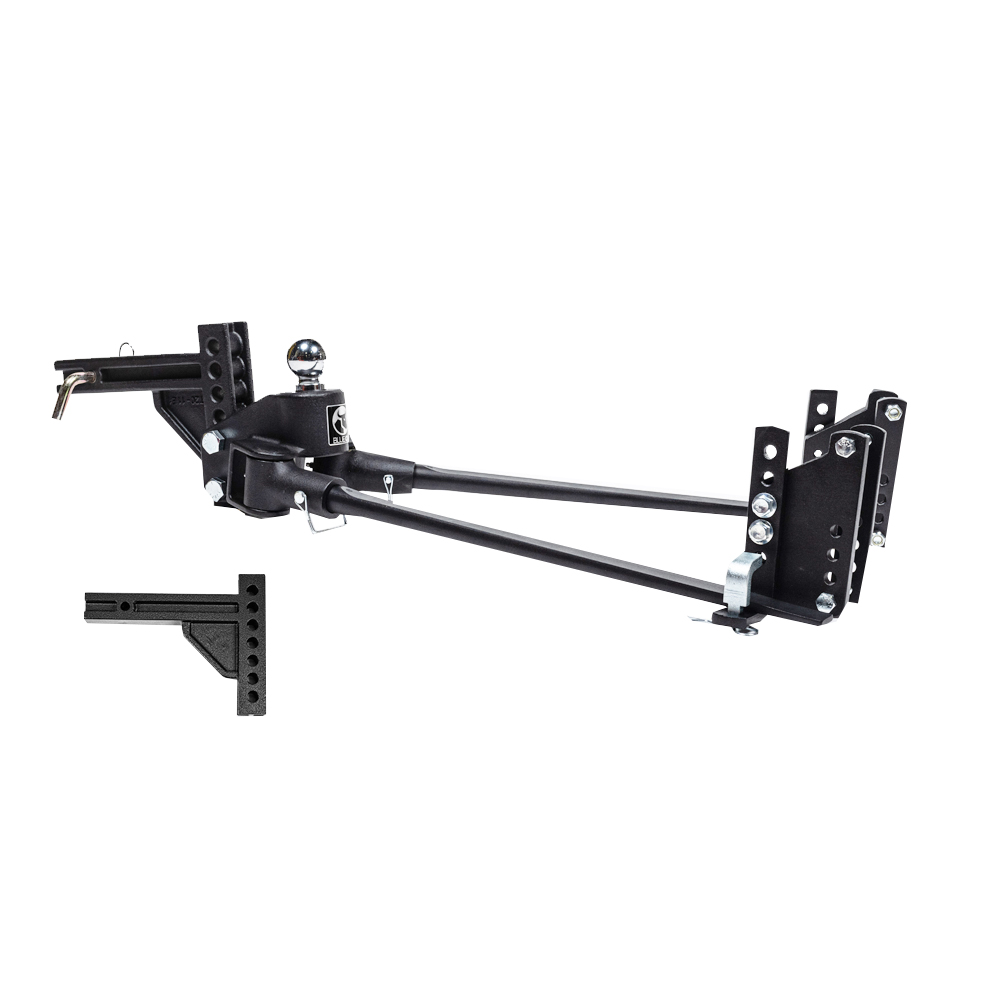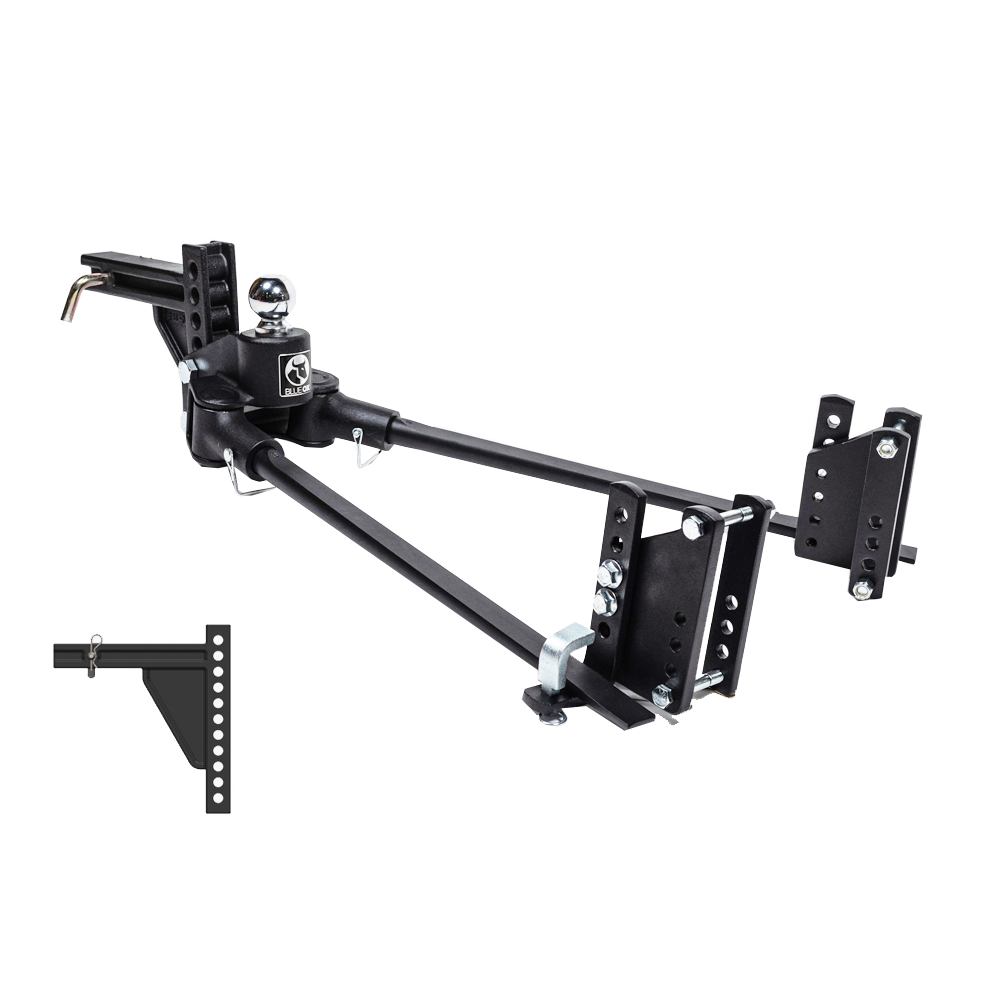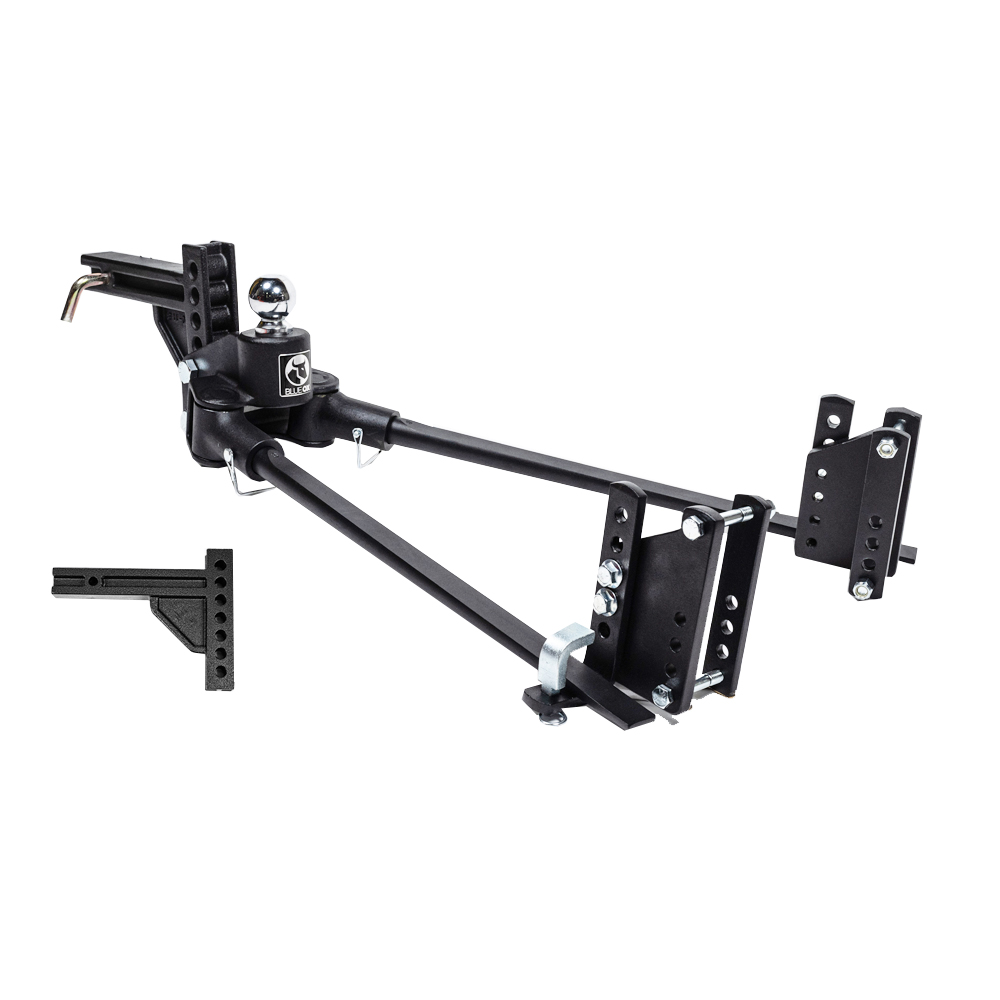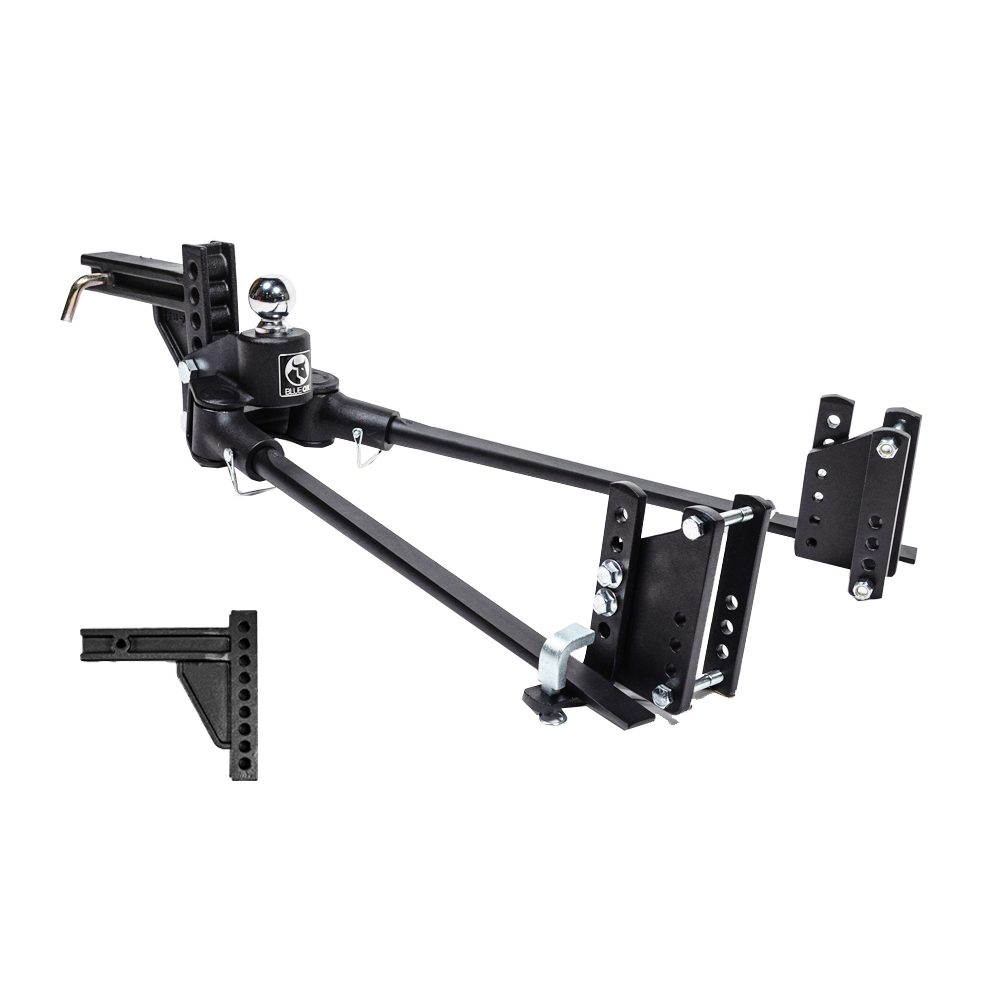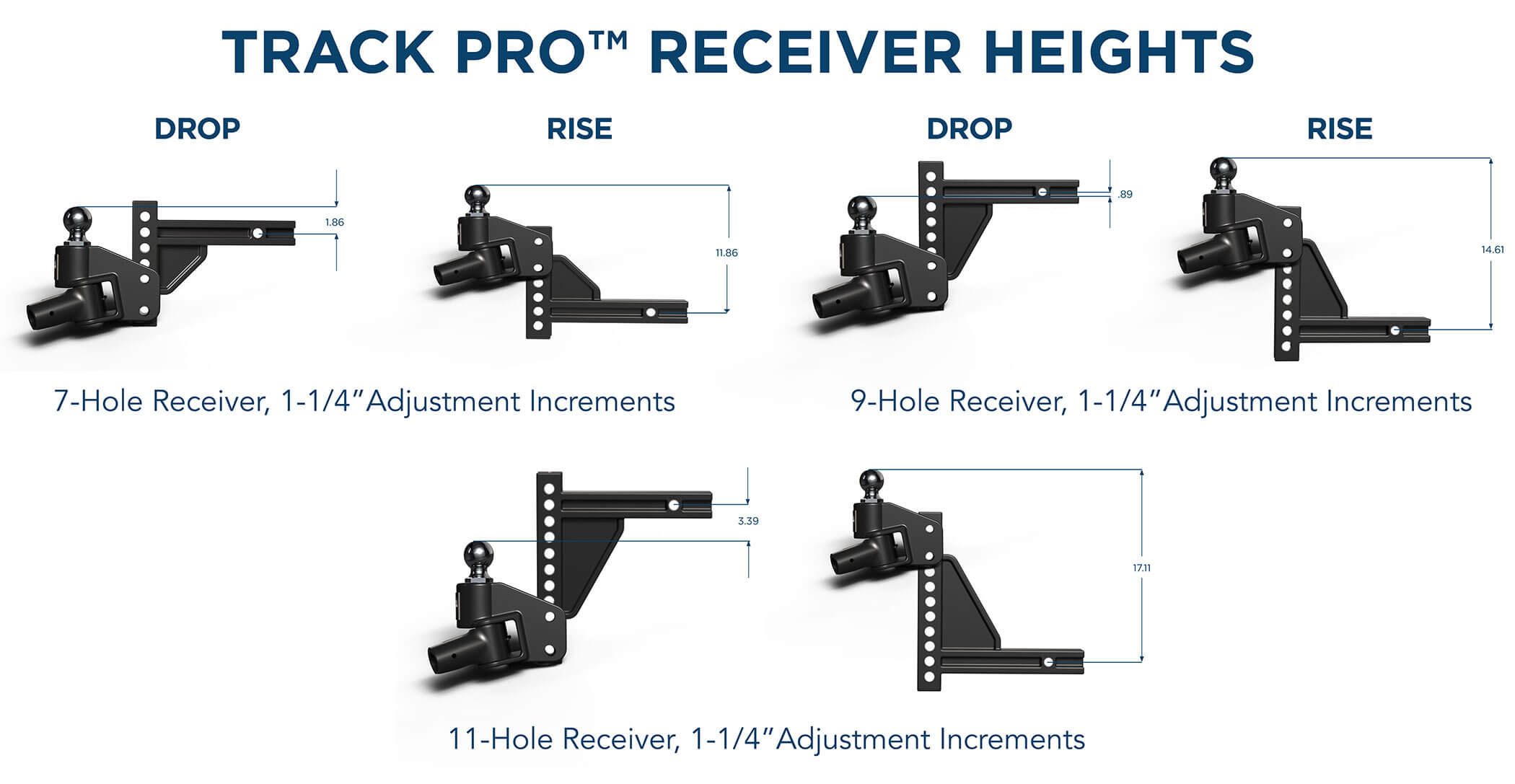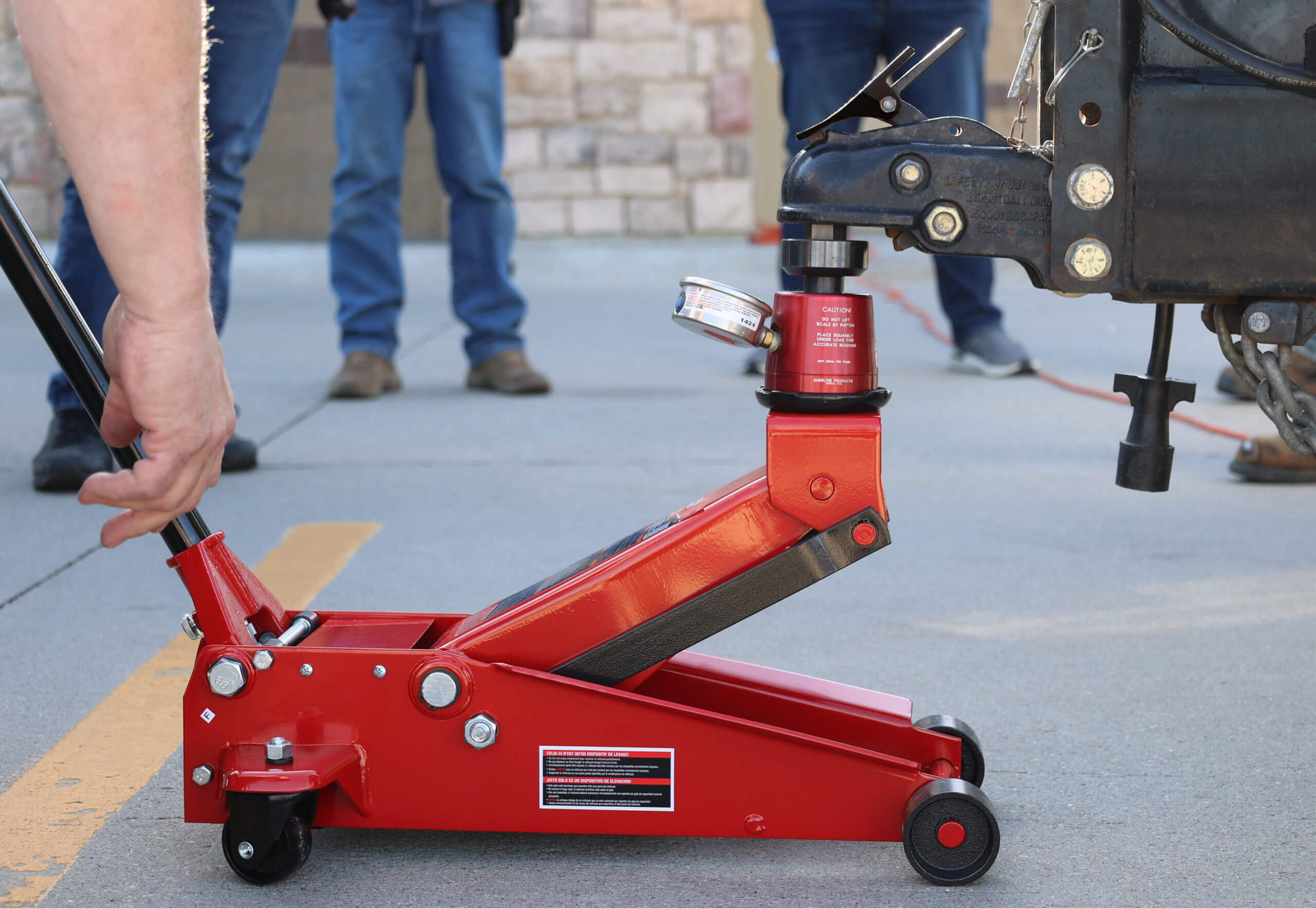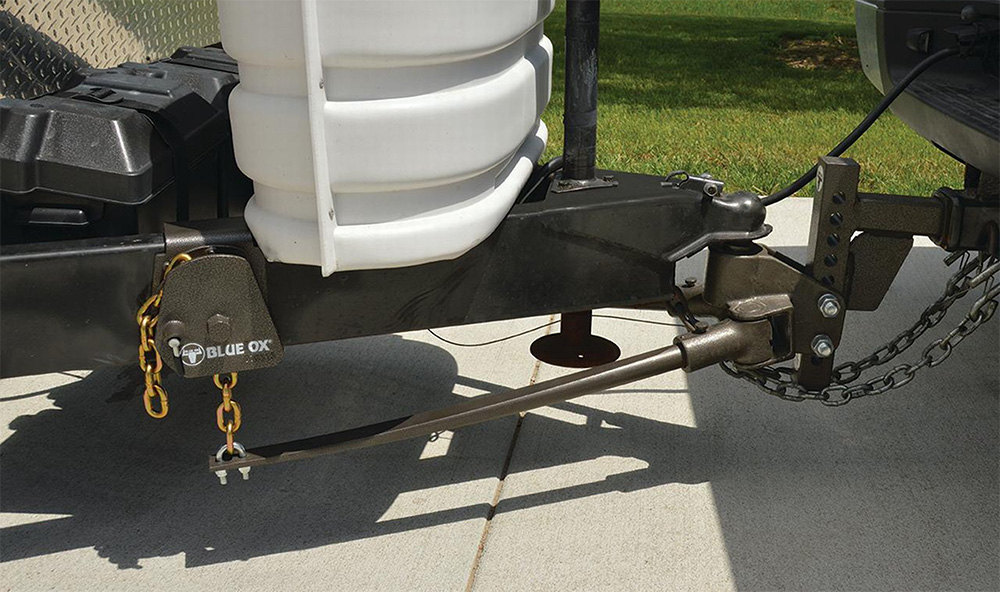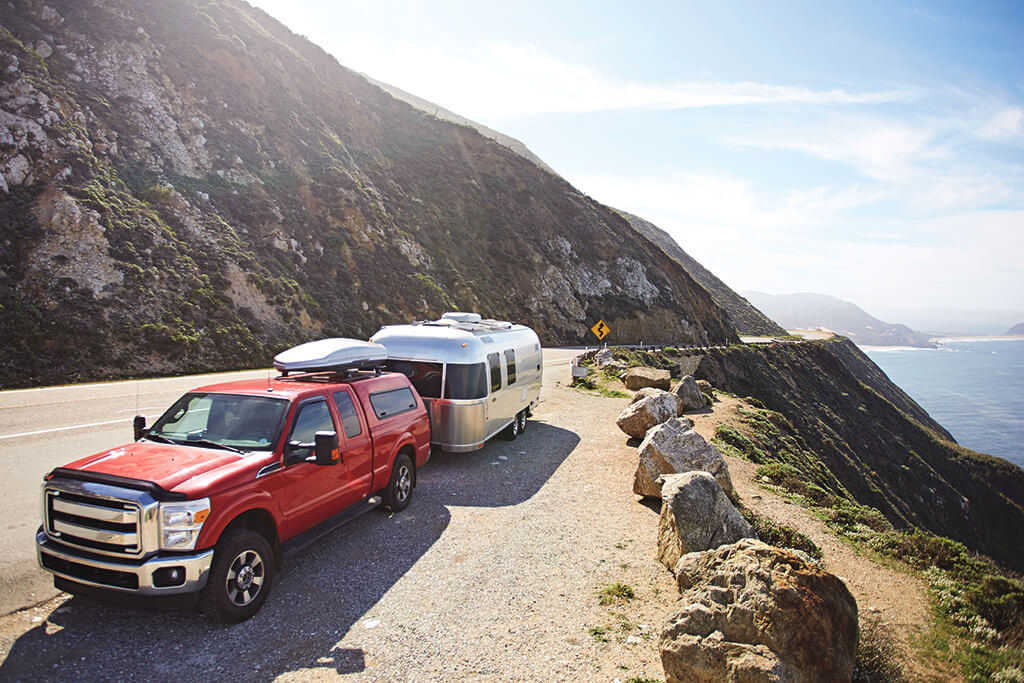
TrackPro™ Weight Distributing Hitch
Premium Sway Management
Features:
- Evenly distributes weight over axles of the tow vehicle and trailer
- Manages sway caused by bad roads, wind, and weather
- The caster in the hitch head constantly centers the trailer
- Spring bars augment the suspensions of the tow vehicle & trailer
- Rigid L-brackets provide additional points of sway-controlling friction
- Backup without disconnecting
- Powder coat over e-coat finish
- Steel construction
Specifications:
- Tongue weights available: 600, 800, 1000 & 1300 lbs
- Gross towing weight: 13K maximum
- 2” receiver, 2-1/2” receiver shank available
Determining the Correct Hitch for Your Application
Use as a guideline only for initial hitch options. Tongue weight and RV GVWR must be verified to ensure proper hitch setup. Remember, optional equipment, additional cargo in both vehicle and RV, Tow Vehicle GCWR, Tow Vehicle weight rating, and RV GVWR must be accounted for when determining the hitch. You are responsible for the purchase and operation of your hitch.
Find Your Hitch. Enter Your Trailer Tongue Weight.
-
BXW0650 TrackPro Weight Distributing Hitch – 7 Hole Shank, 600lbs Tongue, 6000lbs Towing, 2″ Receiver
$658.90 -
BXW0656 TrackPro Weight Distributing Hitch – 11 Hole Shank, 600lbs Tongue, 6000lbs Towing, 2″ Receiver
$658.90 -
BXW0850 TrackPro Weight Distribution Hitch – 7 Hole Shank, 800lbs Tongue, 8000lbs Towing, 2″ Receiver
$658.90 -
BXW0853 TrackPro Weight Distribution Hitch for Trailers with Underslung Couplers – 7 Hole Shank , 800lbs Tongue, 8000lbs Towing, 2″ Receiver
$658.90 -
BXW0851 TrackPro Weight Distribution Hitch -9 Hole Shank, 800lbs Tongue, 8000lbs Towing, 2″ Receiver
$658.90 -
BXW0856 TrackPro Weight Distribution Hitch – 11 Hole Shank, 800lb Tongue, 8000lbs Towing, 2″ Receiver
$658.90 -
BXW1050 TrackPro Weight Distribution Hitch – 7 Hole Shank, 1000lbs Tongue, 10000lbs Towing, 2″ Receiver
$658.90 -
BXW1051 TrackPro Weight Distribution Hitch – 9 Hole Shank, 1000lbs Tongue, 10000lbs Towing, 2″ Receiver
$658.90 -
BXW1053 TrackPro Weight Distribution Hitch for Trailers with Underslung Couplers – 7 Hole Shank, 1000lbs Tongue, 10000lbs Towing, 2″ Receiver
$658.90 -
BXW1056 TrackPro Weight Distribution Hitch – 11 Hole Shank, 1000lbs Tongue, 10000lbs Towing, 2″ Receiver
$658.90 -
BXW1350 TrackPro Weight Distribution Hitch – 7 Hole Shank, 1300lbs Tongue, 13000lbs Towing, 2″ Receiver
$658.90 -
BXW1353 TrackPro Weight Distribution Hitch for Trailers with Underslung Couplers – 7 Hole Shank , 1300lbs Tongue, 13000lbs Towing, 2″ Receiver
$658.90 -
BXW1351 TrackPro Weight Distribution Hitch – 9 Hole Shank, 1300lbs Tongue, 13000lbs Towing, 2″ Receiver
$658.90 -
BXW1356 TrackPro Weight Distribution Hitch – 11 Hole Shank, 1300lbs Tongue, 13000lbs Towing, 2″ Receiver
$658.90
Why Do You Need a Weight Distributing Hitch?
A weight distribution hitch does just what the name says — it evenly distributes the weight of your payload. It works by using adjustable spring bars and tension to distribute the load of the trailer tongue to the trailer and the tow vehicle axles.
How Much Can You Tow?
If your receiver hitch is rated for use with weight distribution, the weight distribution system will allow you to tow at the maximum capacity of the receiver hitch. Weight distribution doesn’t “increase” your receiver’s capacity so much as it will enable the hitch to be used at its maximum capacity.
Generally, most people who choose to tow something try to keep the total weight at around 80 percent of their vehicle’s maximum towing capacity. This is the best way to make sure you don’t cause damage to your vehicle or increase the potential for accidents or difficulty hauling the trailer.
What Happens if You Tow More Than Capacity?
Max towing capacity should not be taken lightly. Exceeding what your vehicle is designed to tow can strain your engine and transmission, accelerate brake wear, damage your tires, and even warp your chassis. This could trigger catastrophic failure while driving and lead to property damage or severe injury.
What Does Trailer Tongue Weight Mean?
The tongue weight is the static force the trailer tongue exerts on the hitch ball. For instance, if a 2,000-pound conventional trailer is loaded with 1,000 pounds of cargo, the proper tongue weight of the loaded trailer should be between 300 and 450 pounds or 10-15 percent of the loaded 3,000-pound total. A tongue scale will confirm actual tongue weight.
Advanced Paint Technology for Superior Durability
E-coat Immersion ensures 100% coverage of complex parts, as well as uniform thickness. This in turn ensures superior corrosion protection.
We add a Powder Coat on top of the E-Coat to make our products UV stable, lending an increased protection to products that face exposure to the elements.
Consistent and controlled application of both the e-coat and powder coat processes are performed by the TTX ACC's (Automated Conveyor Carriers) and a Nordson Encore Automatic Spray System.


